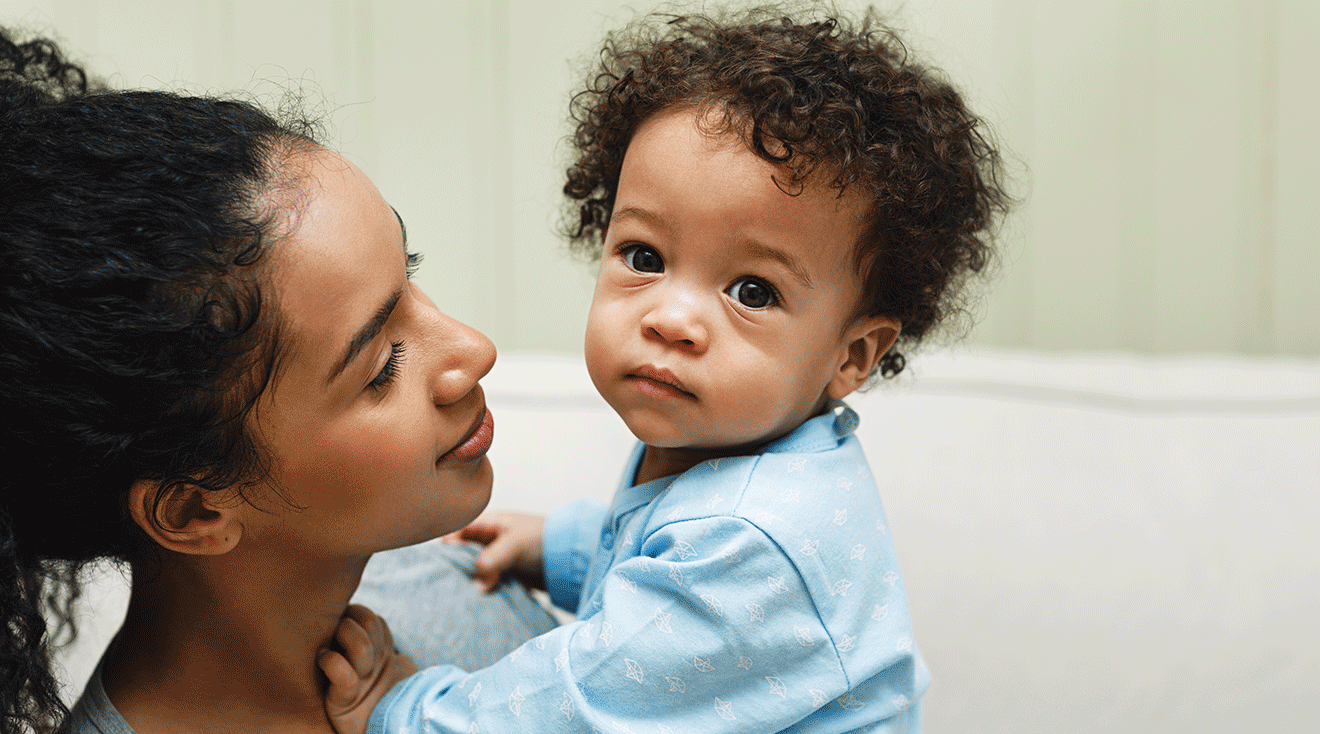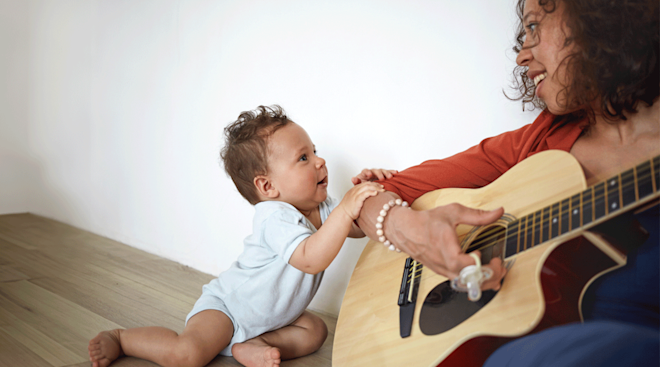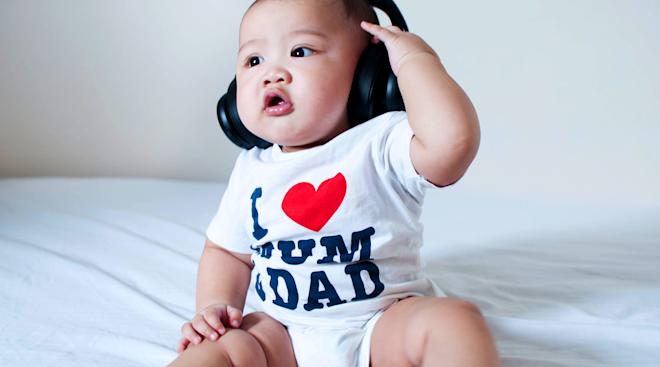“Aren’t you smart!” You’ve likely cooed those words—or something similar—to your little one before. As a parent, you of course take pride in every moment that shows off how bright your child is. “Listen to him recite his colors and shapes!” “She can name every country in South America!” “He knows how to spell his first and last names—backwards!” But while it’s wonderful to celebrate your tot’s smarts, intellectual intelligence isn’t the only thing you should be focusing on. Experts now argue that emotional intelligence (EI), also known as emotional quotient (EQ), is just as important—if not more so—than IQ. Read on to learn why EI matters and how you can go about raising an emotionally intelligent child.
Emotional intelligence is the ability to recognize and manage emotions, both your own and other people’s. “These are the skills that enable children to establish relationships; get along with family members, classmates and friends; solve problems; and learn to care about others,” says Maurice J. Elias, PhD, director of Rutgers University Social-Emotional Learning Lab.
High emotional intelligence is what gives a child the ability to recognize they feel angry when a friend takes their toy without asking, for example. It also helps them manage their response to the situation—in this case, asking for the toy back instead of grabbing it. Being able to identify their own emotions can also help kids better relate to others. (“I felt sad when my dog ran away. Harry looks sad about his missing cat. I’ll give him a hug.”)
The importance of emotional intelligence is far reaching. “When kids have high EQ, there’s evidence that they do better in school, with peers and with teachers,” says Lisa Firestone, PhD, a clinical psychologist and director of research and education at the Glendon Association, a nonprofit organization that conducts and publishes mental health research. And establishing emotional intelligence now may put your child ahead later in life. It can give them the tools to collaborate well with supervisors and employees, enable them to better handle stress and boost their problem-solving skills. In other words, your kid’s chance of getting a promotion in 20 or 30 years could partly depend on the emotional intelligence lessons they’re learning as a preschooler.
The importance of emotional intelligence is high for kids of any age, since it can determine interpersonal and task-related success, Elias says. “Of course, these skills develop gradually, so what looks like emotional intelligence at ages 3 and 7 are pretty different,” he adds. “For preschoolers, kids who are better able to share, ask for help, wait their turn and respond to teachers’ guidance are exhibiting higher levels of emotional intelligence.” So what’s the trick to raising an emotionally intelligent child? Here are eight tips for how to improve emotional intelligence in kids.
• 1. Demonstrate high EI yourself. Textbooks may help raise your kid’s intelligence quotient, but emotional quotient is something that’s largely taught by example, Elias says. In fact, research has found that a parent’s level of emotional intelligence often predicts their child’s. So be aware of how you handle your own emotions. If you’re furious at the driver in front of you, for example, keep the cursing and yelling in check. But if you do blow up (hey, it happens), explain to your child why you’re mad: “That guy is driving dangerously, and it makes me very angry because I want to keep our family safe.”
• 2. Label emotions. Happy, sad, overwhelmed, surprised—if your child is feeling emotional, whether positive or negative, point it out (“I see how excited you are about the first day of school!”). You can also encourage your child to start labeling their own emotions. It may help to place an emotions chart, which illustrates different feelings, somewhere in your house. If your tot isn’t able to articulate their emotion, ask them to point to the face that best represents how they’re feeling.
• 3. Practice identifying emotions. While you’re reading storybooks with your little one, ask your child to identify the feelings they see being exhibited in the book. “Young children should be able to detect happy, sad, mad, glad, worried, scared, proud, nervous and surprised (at least),” Elias says. “If they have a problem with these, point to elements of the pictures that communicate these feelings to help children learn to attend to things like facial expressions, the eyes, mouth, eyebrows and postures as ways to decode feelings in others.”
• 4. Ask questions. This can encourage your child to think about why they’re feeling a certain way—something that’s important when instilling emotional intelligence in kids. Just make sure you’re posing open-ended instead of yes/no questions, Elias says. For example, instead of asking, “Are you frustrated?” you could say, “I see you’re frustrated; why are you feeling this way?”
• 5. Talk about what’s on your mind. “Parents often think they can’t talk about emotions, especially the negative ones—but they can and should,” Firestone says. If there’s a death in the family, for example, discuss your sadness instead of concealing it from your child. Similarly, you could talk through your anger. (“Mommy had a hard day at work. I’m sorry if I’m being snappy, but I’m really tired right now. I’m going to sit on the couch so I can relax for a few minutes and calm down.”). This teaches your child that it’s okay to be emotional, and that managing feelings can help improve outcomes.
• 6. Volunteer together. Helping others is a great way to build empathy in kids. Bring your child with you to the local soup kitchen or go through your closets together, finding too-small clothes that you can donate to a local charity.
• 7. Look for SEL programs. These days, many schools incorporate social-emotional learning (SEL) into the curriculum. If you’re looking to place your child in a new school, find out if SEL is included in lesson plans.
• 8. Welcome all emotions. The old “check your emotions at the door” phrase? Toss it out. In order to be emotionally intelligent, kids need the space to explore their full range of feelings. Give your child permission to be over-the-top excited, inconsolably sad, ridiculously silly—all of it. Then, help them navigate those emotions when needed.
However you decide to teach your child emotional intelligence, aim to do it regularly, just as you would encourage your tot to work on school-related skills frequently. “Emotional intelligence skills are as important as reading skills for a child’s future life success and happiness,” Elias says. And if you’re ever concerned that, despite your best efforts, your child’s emotional intelligence is lacking, talk to your pediatrician. One-on-one work with a child therapist may give your tot the EI boost they need.
Published January 2019
Please note: The Bump and the materials and information it contains are not intended to, and do not constitute, medical or other health advice or diagnosis and should not be used as such. You should always consult with a qualified physician or health professional about your specific circumstances.
Plus, more from The Bump:
Navigate forward to interact with the calendar and select a date. Press the question mark key to get the keyboard shortcuts for changing dates.




















































